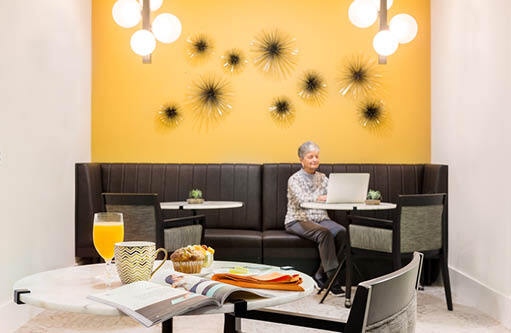
As we traverse the various stages of life, the concept of assisted living takes on new meaning. For many individuals, this phase signifies a transition that demands both adaptability and resilience. Let’s explore the profound journey of assisted living, emphasizing the importance of preserving dignity throughout this process.
Embracing Change
The decision to explore assisted living often stems from a desire to maintain independence while ensuring safety and well-being. It’s crucial to approach this transition with an open mind, recognizing that change is a natural part of life. Rather than viewing it as a relinquishment of control, consider it an opportunity to embrace a new chapter with grace and dignity.
Personalized Care Plans
One of the hallmarks of navigating assisted living is the emphasis on personalized care. Each individual brings a unique set of needs, preferences, and aspirations to the table. Providers of assisted living services understand the importance of tailoring care plans to accommodate these individual differences. This personalized approach ensures that residents receive the support they need while maintaining a sense of autonomy.
Promoting Independence
Contrary to common misconceptions, assisted living is not synonymous with a loss of independence. Instead, it is a space where individuals can receive the necessary support to live life to the fullest. From assistance with daily activities to medical care, the goal is to strike a balance that fosters independence while providing a safety net for residents.

The decision to explore assisted living often stems from a desire to maintain independence while ensuring safety and well-being.
Creating Community
A crucial aspect of the assisted living journey is the sense of community that flourishes within these environments. Residents have the opportunity to engage in social activities, form meaningful connections, and build a support network. This communal atmosphere plays a pivotal role in preserving dignity by fostering a sense of belonging and purpose.
Maintaining Dignity in Care
Dignity is at the core of quality care. Assisted living providers recognize the importance of treating residents with respect, empathy, and compassion. This extends beyond physical care to include emotional and mental well-being. Open communication channels between residents, their families, and care providers contribute to a collaborative approach that upholds dignity in every aspect of care.
Empowering Choices
In the realm of assisted living, empowering residents to make choices about their daily lives is paramount. Whether it’s choosing the activities they participate in, the meals they eat, or the schedule they follow, residents should be active participants in decisions that affect their lives. This empowerment contributes significantly to maintaining a sense of control and dignity.
Final Thoughts
The journey of assisted living, when approached with a focus on dignity, becomes a chapter of growth, connection, and resilience. By embracing change, fostering independence, building a sense of community, and prioritizing personalized care, individuals can navigate this phase with grace and dignity. Assisted living, far from being a compromise, becomes a space where individuals can continue to lead fulfilling lives while receiving the support they need. In this way, the journey becomes a celebration of life and the dignity inherent in every stage of the human experience.

